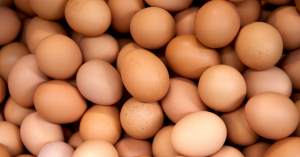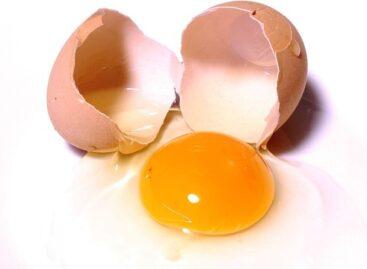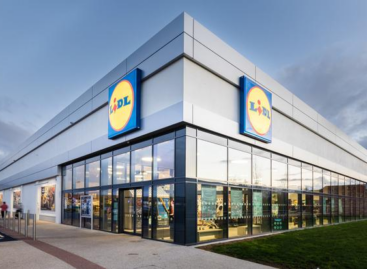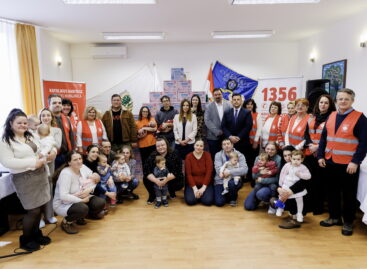Egg producers do their best to have enough eggs for Christmas
Egg producers continue to work at full capacity and try to satisfy the public’s needs even during the peak Christmas season – the Association of Hungarian Egg Hybrid Breeders and Egg Producers (Hungarian Egg Association) reacted to the government decree introducing a price cap for eggs as well. At the same time, if the producers are unable to realize the costs and the sales revenue necessary for subsistence, the lack of the product must be expected – even in the medium term.

Regrettably, the Hungarian Egg Association learned from the government decree that eggs were also included in the range of products with official prices. In addition, while the official prices were extended to one type of product for milk, flour and sugar, the price cap was introduced for all types of storage, size and packaging for eggs. Therefore, the sector is asking for professional consultation from the Minister of Economic Development and the Minister of Agriculture, but of course the farmers will do their best in the meantime to ensure an adequate supply of eggs from their available resources. However, this will not be easy in the changed situation.
“We eat more than 2 billion eggs every year in Hungary, most of which are not consumed at Easter, but now, during the Christmas peak period. This is when the producer has the opportunity to make the profit that he otherwise cannot make or lose during the limited summer season. If the producer is not able to realize the costs and the sales revenue necessary for subsistence, one must expect a product shortage – already in the medium term,” said the president of the Hungarian Egg Association, Prof. Dr. Zoltán Sütő.
“If the producer’s profit is skimmed with the price cap, then unfortunately he cannot create reserves and develop. Egg production is not a production line that can be stopped at any time, so advance planning is a very important factor due to the time-consuming nature of the entire process. Unfortunately, in the current circumstances, this has become completely unpredictable and unplanned,” the president added.
It is feared that, as a result of the official price, retailers will distribute fewer products and maximize the amount that can be sold to one customer, therefore they will order fewer eggs from the producer, and this may lead to a reduction in production capacity. Hungary is not an egg exporter: Hungarian production covers roughly 80 percent of domestic needs, so unfortunately we also need imports. The price of eggs is high throughout Europe – it’s a common market, the effects are the same – this also means that imported eggs are not (would be) cheaper than eggs from Hungarian producers.
As a reminder once again, the consumer price of eggs is formed in three stages:
• PRODUCER COSTS: 70 percent of producer costs are feed costs, which on the one hand became more expensive up to four times due to the Russian-Ukrainian war (both countries are significant wheat, corn and sunflower producing countries). For feed, they calculate world market prices, in many cases you have to pay in euros, so the weakening of the forint didn’t help either. Another significant item is the purchase and raising of laying hens, energy (heating, cooling, air exchange), animal care (human labor, machines), animal health and hygiene costs, depreciation, as well as maintenance and the purchase of new equipment. Ten-fold or twenty-fold increases in energy prices are typical.
• PACKING POINT PRICE: Most of the eggs go to packing centers, from where the goods are forwarded to stores at the packing point price. Here, the biggest cost is the packaging material, which is another “accessory” and has also risen significantly due to the increase in the price of paper.
• CONSUMER PRICE: Large supermarket chains usually compete with egg suppliers, selecting the producer with the lowest price. Thus, the final consumer price of the egg is determined by the traders – after adding their own costs.
Related news
Related news
EY Businessman of the Year: Tibor Veres is the grand prize winner, six special awards were also given out
🎧 Hallgasd a cikket: Lejátszás Szünet Folytatás Leállítás Nyelv: Auto…
Read more >Storck Hungária: new sales manager has arrived
🎧 Hallgasd a cikket: Lejátszás Szünet Folytatás Leállítás Nyelv: Auto…
Read more >








